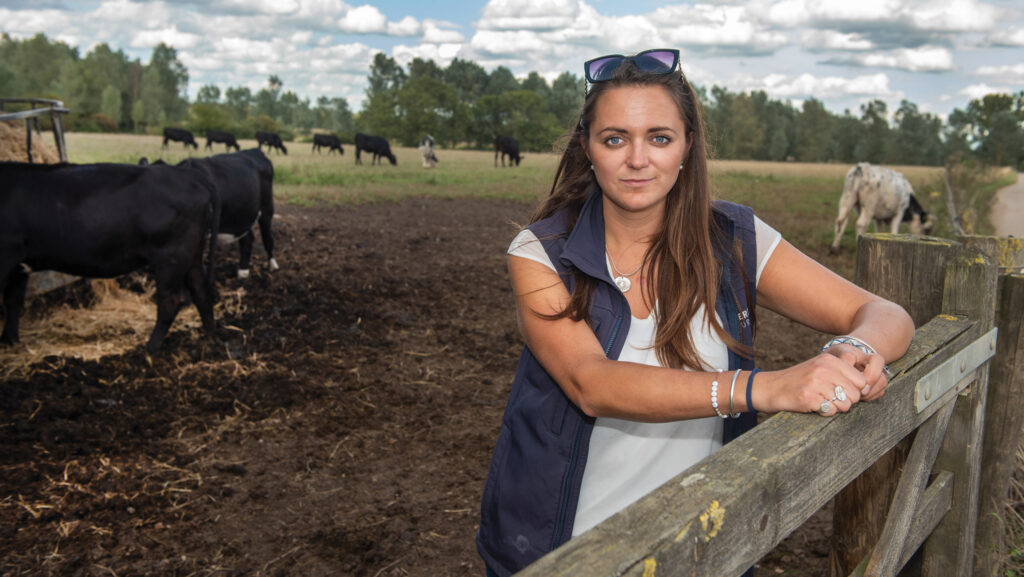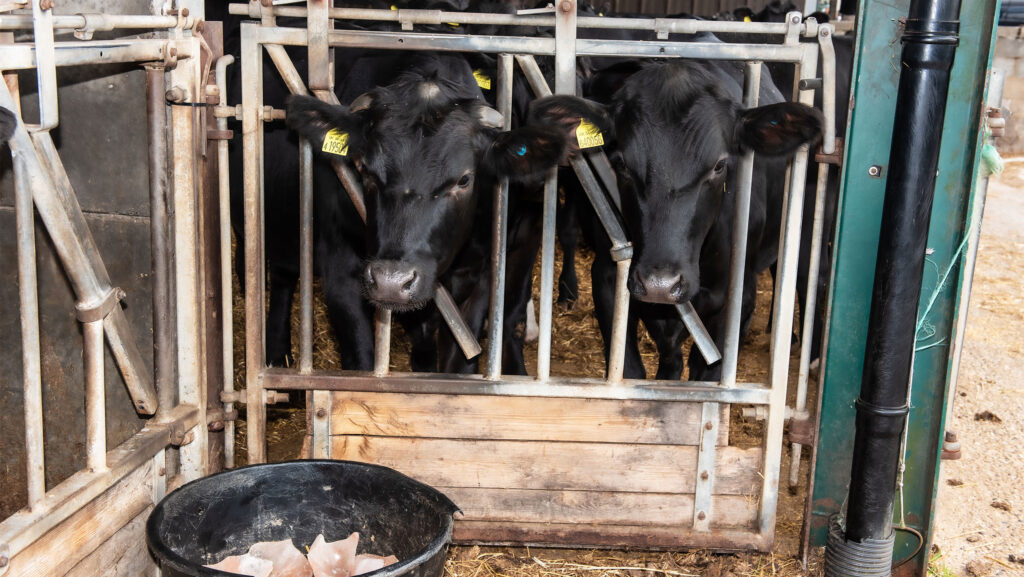Transition Farmer: Loss on wheat but beef prices bode well
 Beth Speakman, Hall Farm, Little Braxted © Phil Weedon
Beth Speakman, Hall Farm, Little Braxted © Phil Weedon Our Farmers Weekly Transition farmers are striving to secure a better future for their businesses.
In Essex, for the Speakmans, de-risking the arable farm business is a major focus.
We catch up with Beth Speakman on progress towards the farm’s transition goals.
See also: More articles on the Speakman’s Transition
Beth Speakman
Farm facts
Little Braxted, Hall Farm, Essex
- Farm size: 275ha
- Annual rainfall: 610mm
- Soil type: Loamy clay
With wheat yields hit by drought, de-risking the arable enterprise by growing different crops is a priority for the Speakman family.
Wheat was previously the cash crop for Beth – who has taken over the role as Farmers Weekly Transition Farmer from father Kit – but returns will be down this year because the dry weather has challenged their farm’s light, gravel soils.
Yields from this harvest have ranged from a high of 10t/ha to 3t/ha.
Decision-making earlier in the cropping year on how to pitch inputs and expenditure was especially difficult, when the wheat looked promising before the pressure of drought.
“It was a very clean crop. But with dry weather and such low commodity prices, we can no longer rely on wheat being our cash crop – so we will try other crops to safeguard our income,” says Beth.
Yields were down but at 13-14%, protein milling specification was easily achieved. This was also true for many wheat growers, reducing premiums and further hitting income.
Horn beats corn

The Speakman’s beef cattle © Phil Weedon
Beth knows it is a loss-making year for the arable business, yet beef prices are strong and that bodes well for their beef-finishing enterprise.
“It is very rare that horn beats corn, but the cattle are doing well due to lower feed prices,” she says.
A Transition goal is to adjust the rotation and include a greater acreage of grass seed, which is more profitable.
Stewardship remains important, with two Sustainable Farming Incentive (SFI) and three Countryside Stewardship scheme agreements in place.
Beth is considering entering the SFI’s low-input cereal option, which has paid £354/ha, to capitalise on the farm’s low chemical usage.
“We will consider low-input oats or barley – the offer of guaranteed income is hard to ignore when prices are so volatile.”
Payments must reflect farmers’ environmental work.
“We have had a lot of advancement in bringing back native species such as turtle doves, lapwings and kites on the farm, but those habitat areas rely on funding.”
Transition goal progress
Approximate percentage of progress towards completion:
- Bridging income gap 40%
- Creating integrated farm business 40%
- Growing more grass and widening the rotation 40%
